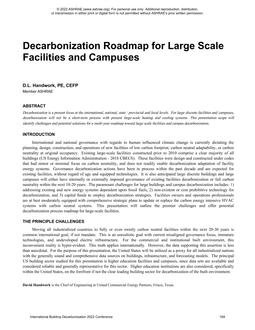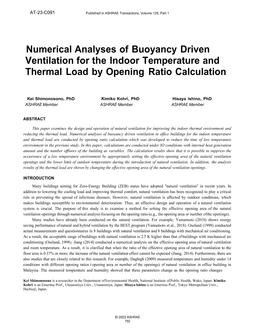
Advanced Energy Design Guide for Grocery Stores — Achieving 50% Energy Savings Toward a Net Zero Energy Building
Advanced Energy Design Guide for Grocery Stores is the fifth in a series designed to provide recommendations for achieving 50% energy savings over the minimum code requirements of ANSI/ASHRAE/IESNA Standard 90.1-2004. The energy savings target of 50% is the next step toward achieving a net zero energy building, which is defined as a building that, on an annual basis, draws from outside resources equal or less energy than it provides using on-site renewable energy sources. ANSI/ASHRAE/IESNA Standard 90.1-2004 provides the fixed reference point and serves as a consistent baseline and scale for all of the 50% Advanced Energy Design Guides.
This Guide focuses on grocery stores ranging in size from 25,000 to 65,000 ft2 with medium- and low-temperature refrigerated cases and walk-ins. The information in this Guide can be combined with that in Advanced Energy Design Guide for Medium to Big-Box Retail Buildings and used for larger stores that consist of both grocery and general merchandise. This Guide does not cover parking garages, campus utilities such as chilled water and steam, water use, or sewage disposal.
The specific energy-saving recommendations are summarized in a single table for each climate zone and allow contractors, consulting engineers, architects, and designers to easily achieve advanced levels of energy savings without detailed energy modeling or analyses.
In addition, this Guide discusses principles of integrated design and how they can be used to implement energy-efficient strategies. A chapter addressing design philosophies for grocery stores is also included. This chapter is devoted primarily to refrigeration as well as the interaction between refrigeration and other building systems.
An expanded section of tips and approaches is included in the “How to Implement Recommendations” chapter. These tips are cross-referenced with the recommendation tables. This chapter also includes additional “bonus” recommendations that identify opportunities to incorporate greater energy savings into the design of the building.
Case studies and technical examples throughout the Guide illustrate the recommendations and demonstrate the technologies in real-world applications.
Co-sponsors include The American Institute of Architects (AIA), Illuminating Engineering Society of North America (IES), USGBC, U.S. Department of Energy (DOE)
Keywords: AEDG, energy efficiency, grocery, refrigeration, walk-ins
Product Details
- Published:
- 2015
- ISBN(s):
- 9781936504909
- Number of Pages:
- 252
- Product Code(s):
- 90563
- Note:
- This product is unavailable in Ukraine, Russia, Belarus


